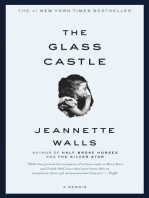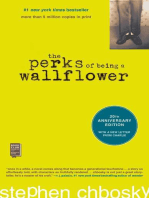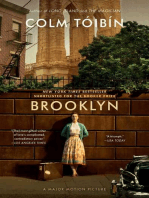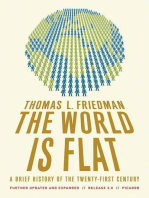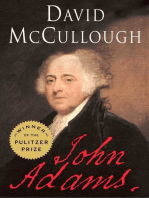In The High Court of Delhi at New Delhi: Date of Decision: 12 April, 2022
In The High Court of Delhi at New Delhi: Date of Decision: 12 April, 2022
Uploaded by
Arun KumarCopyright:
Available Formats
In The High Court of Delhi at New Delhi: Date of Decision: 12 April, 2022
In The High Court of Delhi at New Delhi: Date of Decision: 12 April, 2022
Uploaded by
Arun KumarOriginal Title
Copyright
Available Formats
Share this document
Did you find this document useful?
Is this content inappropriate?
Copyright:
Available Formats
In The High Court of Delhi at New Delhi: Date of Decision: 12 April, 2022
In The High Court of Delhi at New Delhi: Date of Decision: 12 April, 2022
Uploaded by
Arun KumarCopyright:
Available Formats
Signature Not Verified
Digitally Signed
By:DEVANSHU JOSHI
Signing Date:14.04.2022
08:30:19
$~4&16
* IN THE HIGH COURT OF DELHI AT NEW DELHI
Date of Decision: 12th April, 2022
+ C.O.(COMM.IPD-PAT) 3/2021 & I.As. 13644/2021, 3420/2022
DR. REDDYS LABORATORIES LIMITED &
ANR. ….PETITIONERS
Through: Mr. J. Sai Deepak, Advocate with Mr.
Avinash Kumar Sharma, Mr. Ankur
Vyas & Mr. Shahid Khan, Advocates
(M:7289036972)
versus
THE CONTROLLER OF PATENTS & ORS. ..... RESPONDENTS
Through: Mr. Harish V. Shankar, CGSC with
Ms. S. Bushra Kazim, Mr. Srish
Kumar Mishra, Advocates for R-
1/UOI (M:9810788606)
Mr. Sandeep Sethi, Sr. Adv. with Mr.
Sanjay Kumar, Ms. Arpita Sawhney,
Mr. Arun Jamai, Mr. Harshit Dixit,
Mr. Priyansh Sharma, Mr. Abhay
Tandon, Advocates for R-2
(M:9810404749)
16 AND
+ C.O.(COMM.IPD-PAT) 1/2022 & I.A. 3570/2022
THYSSENKRUPP ROTHE ERDE GERMANY
GMBH …..PETITIONER
Through: Mr. Pranaynath Jha, Mr. Mahesh
Kumar, Mr. Nilanshu Shekhar, Mr.
Shubham Gupta, Advocates
(M:9910387042)
versus
THE CONTROLLER OF PATENTS & ANR ...... RESPONDENTS
Through: Mr. Harish V. Shankar, CGSC with
Ms. S. Bushra Kazim, Mr. Srish
Kumar Mishra, Advocates for R-
1/UOI
C.O.(COMM.IPD-PAT) 3/2021& other connected matter Page 1 of 9
Signature Not Verified
Digitally Signed
By:DEVANSHU JOSHI
Signing Date:14.04.2022
08:30:19
Mr. MS Bharath, Mr. Ayush Sharma
Advocates for Respondent no.2
Ms. Rajeshwari H., Advocate
CORAM:
JUSTICE PRATHIBA M. SINGH
Prathiba M. Singh, J.(Oral)
1. This hearing has been done through hybrid mode.
I.A. 5674/2022 in C.O.(COMM.IPD-PAT) 3/2021
2. This is an application by the Petitioners seeking to place on record
affidavits of the expert, Dr. Jeffrey A. Stafford. The said affidavits, annexed
to the present application, are taken on record, subject to any objections of
the Petitioners, who may wish to controvert the same by way of their own
affidavits, if required.
3. Accordingly, I.A. 5674/2022 is disposed of.
I.A. 3419/2022 in C.O.(COMM.IPD-PAT) 3/2021
4. This is an application seeking dismissal of the present revocation
petition on the ground that it is barred by limitation. The patent in this case
of which revocation is sought is Indian Patent 268846 (hereinafter
“IN’846”) titled ‘Glucopyranosyl-substituted Benzenol derivatives, drugs
containing said compounds, the use thereof and method for the production
thereof’ granted on 18th September, 2017 and published in the official
gazette by the Patent Office, on 25th September, 2017. The present petition
was filed on 16th October, 2021.
5. The submission of Mr. Sethi, ld. Senior Counsel appearing for the
Defendant-Patentee is that the time period for the post grant opposition
expired on 25th September, 2018 and the time period to file the revocation
C.O.(COMM.IPD-PAT) 3/2021& other connected matter Page 2 of 9
Signature Not Verified
Digitally Signed
By:DEVANSHU JOSHI
Signing Date:14.04.2022
08:30:19
petition expired on 25th September, 2020, by applying Section 137 of the
Limitation Act, 1963 (hereinafter “Limitation Act”). He relies upon the
decision of the Calcutta High Court in Bayer AG v. Controller of Patents,
AIR 1982 Cal 30, to argue that in such a case, the limitation period as per
the Limitation Act would commence once the cause of action has arisen, and
the Petitioner cannot choose to approach the Court at any time during the
life of the patent.
6. On the other hand, Mr. Sai Deepak, ld. Counsel appearing for the
Petitioner, submits that the only two pre-conditions for filing of the
revocation petition under Section 64 (2)(b), of the Patents Act, 1970
(hereinafter “Patents Act”) are (i) that the person who approaches the Court
is a `person interested’ and (ii) that the patent continues to remain on the
Patent Register. If these two conditions are satisfied, the revocation petition
under Section 64 can be filed any time during the life of the patent.
7. Heard and perused the record. The issue that arises in this application
is whether revocation petitions are subject to any limitation period under the
Limitation Act. At the outset, this Court notes the procedure for revocation.
In the scheme of the Patents Act, the patent application once filed and
examined, is granted under Section 43. Upon the grant of the patent, the
exclusive rights vest in the Patentee in terms of Section 48 of the Patents
Act. The term of the patent however, is for a period of 20 years from the
date of priority or date of application in terms of the provisions of the
Patents Act. The patent continues to remain in the register for the entire
period of the life of the patent which is 20 years.
8. Upon the grant of a patent, there are various remedies available to a
person interested for seeking to challenge the grant of the Patent. The first
C.O.(COMM.IPD-PAT) 3/2021& other connected matter Page 3 of 9
Signature Not Verified
Digitally Signed
By:DEVANSHU JOSHI
Signing Date:14.04.2022
08:30:19
remedy would be a post grant opposition which could be filed within the
time prescribed under Section 25(2) of the Patents Act read with the Patent
Rules, 2003 (hereinafter “Patents Rules”). The second remedy, is under
Section 64 of the Patents Act. Under Section 64, any ‘person interested’ can
prefer a revocation petition in the following manner:
1. As an independent petition seeking revocation.
2. By way of a counter claim in a suit for infringement.
9. In both these circumstances, the ‘person interested’ would be
permitted to seek revocation on any of the grounds mentioned in Section 64,
so long as such a person is in some way ‘interested’ if the patent continues
on the register. Section 2(1)(t) of the Patents Act defines a ‘person
interested’ as:
(t) “person interested” includes a person engaged in,
or in promoting, research in the same field as that to
which the invention relates;
10. On the definition of a ‘person interested’, the Supreme Court in Aloys
Wobben & Ors. v. Yogesh Mehra & Ors., (2014) 15 SCC 360, observed as
under:
“20…Simply stated, a "person interested" would
include a person who has a direct, present and
tangible interest with a patent, and the grant of the
patent, adversely affects his above rights. A "person
interested" would include any individual who desires
to make independent use of either the invention itself
(which has been patented), or desires to exploit the
process (which has been patented) in his individual
production activity.
Therefore, the term "any person interested" is not
static. The same person, may not be a "person
C.O.(COMM.IPD-PAT) 3/2021& other connected matter Page 4 of 9
Signature Not Verified
Digitally Signed
By:DEVANSHU JOSHI
Signing Date:14.04.2022
08:30:19
interested" when the grant of the concerned patent was
published, and yet on account of his activities at a later
point in time, he may assume such a character or
disposition. It is, therefore, that Section 64 of the
Patents Act additionally vests in "any person
interested", the liberty to assail the grant of a patent,
by seeking its revocation. The grounds of such
challenge, have already been enumerated above.”
11. Therefore, the trigger for a person to file a revocation petition could
arise in various circumstances including:
a. If the person interested wishes to manufacture or sell the
patented product or a product using the patented process.
b. If a suit for infringement is filed against the person
interested.
c. If a person is `interested’ in the invention covered by the
patent in any other manner whatsoever.
12. The said interest in the patent could arise at any point of time during
the period when the patent remains in the register till the term of the patent
expires.
13. Since the interest in seeking revocation could arise at any time, it is
notable that there is no specific limitation period prescribed for seeking
revocation under Section 64. By contrast, under Section 25(2), a specific
period of limitation has been prescribed for oppositions. Section 25(2) of the
Patents Act reads as under:
“(2) At any time after the grant of patent but before the
expiry of a period of one year from the date of
publication of grant of a patent, any person interested
may give notice of opposition to the Controller in the
prescribed manner on any of the following grounds,
namely:-…”
C.O.(COMM.IPD-PAT) 3/2021& other connected matter Page 5 of 9
Signature Not Verified
Digitally Signed
By:DEVANSHU JOSHI
Signing Date:14.04.2022
08:30:19
14. The reason for prescribing a time period in Section 25(2) but not
using any such language in Section 64 is not far to seek in as much as the
public policy in India dictates that at any point in time, if any person or even
the Central Government wishes to seek revocation, it ought to have a
remedy to avail of, in accordance with law. To read Article 137 of the
Limitation Act, into Section 64 of the Patents Act, would be in effect
rewriting the said provision, which would not be permissible by judicial
interpretation. Moreover, the fact that a ‘person interested’ can file a counter
claim under Section 64 seeking revocation shows that the trigger for the
filing of the counter claim may not arise until and unless the suit itself is
filed. This itself shows that the limitation of three years cannot be read into
the period for filing the revocation petition.
15. This position is also supported by the IPAB decisions in Ajanta
Pharma Limited v. Allergen Inc. & Ors., 2013 (56) PTC 146 (IPAB), and
Tata Global Beverages Limited vs. Hindustan Unilever Limited and Anr.,
[Order No: 240 of 2012 dated 18/10/2012 in TRA/1/2007/PT/MUM],
where in Ajanta (supra), the IPAB observed as under:
“8. The counsel for the Applicant submitted that the
Law of Limitation is applicable to Courts and the
Hon'ble IPAB is not a Court but a techno-legal quasi-
judicial authority having certain trappings of a Court.
This Hon'ble Board in the case of Tata Global
Beverages Limited vs. Hindustan Unilever Limited and
Anr. - Order No: 240 of 2012 dated 18/10/2012 in
TRA/1/2007/PT/MUM; was pleased to has held that
Limitations Act, 1963 does not apply to an application
under section 64 of the Patents Act filed before the
Appellate Board. The relevant paragraph from the
aforesaid case law is reproduced below for ready
reference:
C.O.(COMM.IPD-PAT) 3/2021& other connected matter Page 6 of 9
Signature Not Verified
Digitally Signed
By:DEVANSHU JOSHI
Signing Date:14.04.2022
08:30:19
…
9. The learned counsel for the Applicant submitted that
it was at a higher pedestal than this case, as there was
an impending infringement action that was filed by the
Respondent. Due to this, the period of limitation ought
to be construed along the lines of infringement
limitation determination, wherein every instance of
infringement gives rise to a fresh cause of action.
XXX
11. We have already dealt with issue of limitation in
IPAB order 240/2012 in TRA/1/2007/PT/MUM we find
same is applicable here.
The right to revoke patent any time after the grant
of patent under section 64 cannot be extinguished
after three years from the date of the publication
of the grant by applying limitation of three years
under Article 137 of the Limitation Act. This will
run contrary to the scheme of the patent law. It is
immaterial as to when the applicant for
revocation came to know about the existence of
patent or when the right to revoke the patent
accrued. Thus the application for revocation can
be filed before Appellate Board any time after the
grant of a patent. This application is therefore not
time barred. This revocation application is not
time barred.”
16. Moreover, the Supreme Court has also observed that when a provision
does not prescribe a limitation period, the same cannot be read into the
statute. The relevant observations in Ajaib Singh v. The Sirhind Co-
Operative Marketing Cum-Processing Service Society Limited and Ors.,
AIR 1999 SC 1351, are as under:
“11…Reliance of the learned Counsel for the
respondent management on the full bench judgment of
the Punjab and Haryana High Court in Ram Chancier
Morya v. State of Haryana (1999) 1 SCT 141 is also of
C.O.(COMM.IPD-PAT) 3/2021& other connected matter Page 7 of 9
Signature Not Verified
Digitally Signed
By:DEVANSHU JOSHI
Signing Date:14.04.2022
08:30:19
no help to him. In that case the High Court nowhere
held that the provisions of Article 137 of the Limitation
Act were applicable in the proceedings under the Act.
The Court specifically held "neither any limitation has
been provided nor any guidelines to determine as to
what shall be the period of limitation in such cases."
However, it went on further to say that "reasonable
time in the cases of labour for demand of reference or
dispute by appropriate government to labour tribunals
will be five years after which the government can
refuse to make a reference on the ground of delay and
latches if there is no explanation to the delay." We are
of the opinion that the Punjab and Haryana High
Court was not justified in prescribing the limitation for
getting the reference made or an application under
Section 37C of the Act to be adjudicated. It is not the
function of the court to prescribe the limitation where
the Legislature in its wisdom had though if fit not to
prescribe any period. The courts admittedly interpret
law and do not make laws. Personal views of the
Judges presiding the court cannot be stretched to
authorise them to interpret law in such a manner which
would amount to legislation intentionally left over by
the Legislature. The judgment of the Full Bench of the
Punjab and Haryana High Court has completely
ignored the object of the Act and various
pronouncements of this Court as noted hereinabove
and thus is not a good law on the point of the
applicability of the period of limitation for the
purposes of invoking the jurisdiction of the
courts/boards and tribunal under the Act.”
17. Mr. Sethi had placed reliance upon the decision of the Calcutta High
Court in Bayer AG (supra). A perusal of the said decision shows that in the
said case, the Calcutta High Court was dealing with a case where the
patentee itself was aggrieved by the order of the Patent Office, treating a
particular invention as a `weedicide’ and fixing a shorter term for the said
C.O.(COMM.IPD-PAT) 3/2021& other connected matter Page 8 of 9
Signature Not Verified
Digitally Signed
By:DEVANSHU JOSHI
Signing Date:14.04.2022
08:30:19
patented product. The matter before the High Court of Calcutta, arose out of
an application filed under Section 71 of the Patents Act seeking rectification
of the register, and not Section 64 of the Patents Act. Thus, the Court held
the Limitation Act to be applicable. The decision in Bayer AG (supra) is
completely distinguishable from the facts in the present case. This decision
was also placed before the IPAB, in Ajanta (supra) and was not applied to
revocation petitions under Section 64.
18. In Section 64 of the Patents Act, since there is no limitation which is
prescribed either in the Patents Act or under the Patents Rules, this Court
holds that a limitation period cannot be read it into the provision. In the
light of the above cited judicial pronouncements and the dynamic/broad
definition of ‘persons interested’, filing of a revocation petition could be
done at any point in time when such a person’s interest either arises or
continues during the life/term of the Patent. This application is thus devoid
of merit and is liable to be dismissed.
19. Accordingly, I.A. 3419/2022 is dismissed.
C.O.(COMM.IPD-PAT) 3/2021 & I.As. 13644/2021 & 3420/2022
C.O.(COMM.IPD-PAT) 1/2022 & I.A. 3570/2022
20. List on 18th April, 2022 for further submissions, on top of Board.
PRATHIBA M. SINGH
JUDGE
APRIL 12, 2022/aman/MS
C.O.(COMM.IPD-PAT) 3/2021& other connected matter Page 9 of 9
You might also like
- The Subtle Art of Not Giving a F*ck: A Counterintuitive Approach to Living a Good LifeFrom EverandThe Subtle Art of Not Giving a F*ck: A Counterintuitive Approach to Living a Good LifeRating: 4 out of 5 stars4/5 (5943)
- The Gifts of Imperfection: Let Go of Who You Think You're Supposed to Be and Embrace Who You AreFrom EverandThe Gifts of Imperfection: Let Go of Who You Think You're Supposed to Be and Embrace Who You AreRating: 4 out of 5 stars4/5 (1108)
- Never Split the Difference: Negotiating As If Your Life Depended On ItFrom EverandNever Split the Difference: Negotiating As If Your Life Depended On ItRating: 4.5 out of 5 stars4.5/5 (888)
- Hidden Figures: The American Dream and the Untold Story of the Black Women Mathematicians Who Helped Win the Space RaceFrom EverandHidden Figures: The American Dream and the Untold Story of the Black Women Mathematicians Who Helped Win the Space RaceRating: 4 out of 5 stars4/5 (926)
- Grit: The Power of Passion and PerseveranceFrom EverandGrit: The Power of Passion and PerseveranceRating: 4 out of 5 stars4/5 (598)
- Shoe Dog: A Memoir by the Creator of NikeFrom EverandShoe Dog: A Memoir by the Creator of NikeRating: 4.5 out of 5 stars4.5/5 (545)
- The Hard Thing About Hard Things: Building a Business When There Are No Easy AnswersFrom EverandThe Hard Thing About Hard Things: Building a Business When There Are No Easy AnswersRating: 4.5 out of 5 stars4.5/5 (354)
- Elon Musk: Tesla, SpaceX, and the Quest for a Fantastic FutureFrom EverandElon Musk: Tesla, SpaceX, and the Quest for a Fantastic FutureRating: 4.5 out of 5 stars4.5/5 (476)
- Her Body and Other Parties: StoriesFrom EverandHer Body and Other Parties: StoriesRating: 4 out of 5 stars4/5 (831)
- The Emperor of All Maladies: A Biography of CancerFrom EverandThe Emperor of All Maladies: A Biography of CancerRating: 4.5 out of 5 stars4.5/5 (274)
- The Little Book of Hygge: Danish Secrets to Happy LivingFrom EverandThe Little Book of Hygge: Danish Secrets to Happy LivingRating: 3.5 out of 5 stars3.5/5 (419)
- The World Is Flat 3.0: A Brief History of the Twenty-first CenturyFrom EverandThe World Is Flat 3.0: A Brief History of the Twenty-first CenturyRating: 3.5 out of 5 stars3.5/5 (2272)
- The Yellow House: A Memoir (2019 National Book Award Winner)From EverandThe Yellow House: A Memoir (2019 National Book Award Winner)Rating: 4 out of 5 stars4/5 (99)
- Devil in the Grove: Thurgood Marshall, the Groveland Boys, and the Dawn of a New AmericaFrom EverandDevil in the Grove: Thurgood Marshall, the Groveland Boys, and the Dawn of a New AmericaRating: 4.5 out of 5 stars4.5/5 (270)
- The Sympathizer: A Novel (Pulitzer Prize for Fiction)From EverandThe Sympathizer: A Novel (Pulitzer Prize for Fiction)Rating: 4.5 out of 5 stars4.5/5 (122)
- Team of Rivals: The Political Genius of Abraham LincolnFrom EverandTeam of Rivals: The Political Genius of Abraham LincolnRating: 4.5 out of 5 stars4.5/5 (235)
- A Heartbreaking Work Of Staggering Genius: A Memoir Based on a True StoryFrom EverandA Heartbreaking Work Of Staggering Genius: A Memoir Based on a True StoryRating: 3.5 out of 5 stars3.5/5 (232)
- On Fire: The (Burning) Case for a Green New DealFrom EverandOn Fire: The (Burning) Case for a Green New DealRating: 4 out of 5 stars4/5 (75)
- The Unwinding: An Inner History of the New AmericaFrom EverandThe Unwinding: An Inner History of the New AmericaRating: 4 out of 5 stars4/5 (45)




